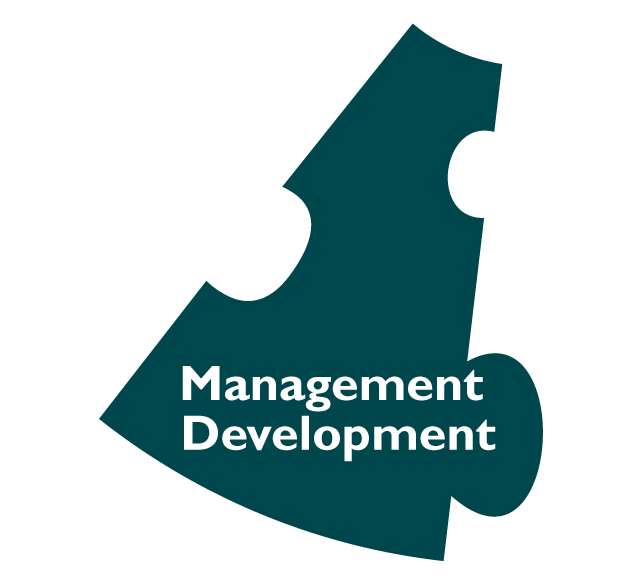
Management development programs aim at improving the overall effectiveness of managers at their existing positions as well as preparing them for greater responsibility when they are promoted.
These programs have become more prevalent in recent years because of increasingly complex demands on managers.
Another reason is the problem of training managers through experience alone which is a time-consuming and unreliable process.
There are overall two paths for management development;
- On-the-job methods
- Off-the-job methods
On-the-job Methods
In management development programs, on-the-job methods are usually preferred.
This type of training is far more likely than the off-the-job type to be tailored to the requirements of an individual.
Four major formal on-the-job development methods are as follows:
Coaching: The training of an employee of a managerial cadre by his or her immediate supervising officer is by far the most effective management development technique.
Unfortunately, many managers are either unable or unwilling to coach those they supervise.
In order to be effective, on-the-job coaching must be tempered with considerable restraint. Employees cannot develop unless they are allowed to work out problems in their own way.
Managers quite frequently feel compelled to tell their employees exactly what to do thereby negating the effectiveness of coaching.
Related: Why Leaders are Born but Managers are Made
Again, some managers sometimes feel threatened when asked to coach an employee, fearing they are asked to create a rival.
In fact, the manager has much to gain from coaching, since a manager quite often is not likely to be promoted unless a successor is available to replace him/her.
Many organizations give much emphasis to coaching their managers.
Conscientious managers often maintain a development file for each of their employees, indicating the training he/she is receiving, the skills he/she is acquiring, and the rate of his or her progress in performance.
A record of critical incidents—situations in which an employee displays desirable or undesirable behavior may be included.
Related: Authority Delegation in Organization
Job rotation: This involves shifting managers from position to position so that they can broaden their experience and familiarize themselves with various aspects of the firm’s operations.
Training positions: This is the third method of developing managers.
Trainees are given staff posts immediately under a manager, often with the title of “assistant to,” Such assignments give trainees a chance to work with and model themselves after outstanding managers who might otherwise have little contact with them.
Planned work: It involves giving trainees important work assignments to develop their experience and ability.
Trainees may be asked to head a task force or participate in an important committee meeting.
Such experiences help them gain insight into how organizations operate and also improve their human relations skills.
Related: Managers Must be a Leader: Leadership Qualities Every Project Manager Should Possess
Off-the-Job Methods
Off-the-job development techniques remove individuals from the stresses and ongoing demands of the workplace, enabling them to focus fully on the learning experience.
In addition,
they provide opportunities for meeting people from other departments or organizations.
Thus, employees are exposed to useful new ideas and experiences while they make potentially useful contacts.
The most common off-the-job development methods are in-house classroom instruction and management development programs sponsored by universities and organizations.
Management development programs almost invariably include some form of classroom instruction in which specialists from inside or outside the organization teach trainees a particular subject.
Classroom teaching is often supplemented with case studies, role-playing and business games, or simulations.
For instance, managers may be asked to play roles on both sides in a simulated labor-management dispute.
A number of organizations in the developed countries send selected employees to university-sponsored management development programs.
Many major universities have such programs, which vary from a week to three months or more. Some universities also have one- year full-time study programs for mid-level managers.
Usually, these managers are selected for promotion.
They are sent to university programs to broaden their perspectives and groom them for movement into general (as opposed to functional) management.
Such university programs often combine classroom instruction with case studies, role-playing, and simulation.
In the USA, increasingly large corporations are assuming many of the functions of universities with regard to the advanced off-the-job training of employees.
Many business firms and industrial associations offer an accredited academic degree.
Rank Xerox, Arthur Anderson, G. E, and Holiday Inns have each acquired educational facilities that almost resemble university campuses.
Management development aims at improving the overall effectiveness of managers at existing positions also preparing them for future greater responsibilities.